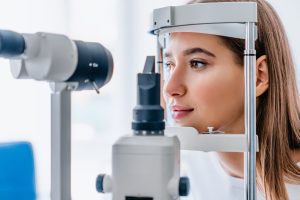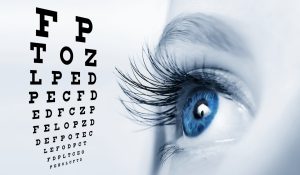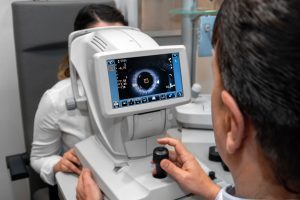How long does a typical appointment with an optometrist in Edmonton last?
Frequently Asked Questions
How long does a typical appointment with an optometrist in Edmonton last?
The duration of an appointment with an optometrist in Edmonton, or anywhere else for that matter, can vary depending on several factors such as the reason for the visit, the complexity of the patient’s eye condition, and whether it’s a first-time visit or a follow-up. Typically, a routine eye examination for an adult without any significant eye problems lasts about 20 to 30 minutes. However, if the appointment includes additional tests, such as dilating the pupils to examine the retina or conducting visual field tests, the appointment could extend to an hour or more. For patients with a history of eye problems or who are experiencing specific symptoms, the optometrist may take additional time to perform thorough testing and discuss the findings. Similarly, a first-time patient may have a slightly longer appointment as the optometrist will need to take a detailed medical history and may perform a more comprehensive examination. It’s always a good idea to allocate a bit of extra time for the appointment, especially if it’s your first visit or if you have specific concerns about your eye health.
Questions to ask your optometrist during an eye exam
When you visit an optometrist for an eye exam, it’s important to ask questions that can help you understand your eye health and any necessary steps you need to take to maintain or improve it. Here are some questions you might consider asking:
- What is my current prescription for glasses or contact lenses? It’s good to understand the details of your prescription, especially if it has changed since your last visit.
- Can you explain the results of my eye exam? Ask for a clear understanding of the findings and their significance.
- Is the health of my eyes generally good? Find out if there are any early signs of common eye conditions such as glaucoma, cataracts, or macular degeneration.
- How often should I have my eyes examined? Knowing the recommended frequency for exams can help in scheduling future appointments.
- Are there any signs of eye strain or Computer Vision Syndrome? This is especially relevant if you spend long hours in front of a computer or other screens.
- What should I do to maintain or improve my eye health? Ask for recommendations regarding diet, eye exercises, or lifestyle changes.
- Are my current glasses or contact lenses suitable for my lifestyle and eye health? Sometimes, switching to a different type of lens or updating your frames can be beneficial.
- Do I need to protect my eyes from the sun and, if so, what sunglasses do you recommend? Understanding the importance of UV protection and what to look for in sunglasses is vital for eye health.
- Is there anything in my medical history that could affect my eyes? If you have health issues such as diabetes or a family history of eye disease, it’s good to understand how these may affect your eye health.
- What are the symptoms of eye problems that I should be aware of? Knowing when to seek medical attention can be important for preventing eye problems from worsening.
- If I have dry eyes, what treatments or remedies do you recommend? Understand the options for managing dry eyes, if applicable.
- Are there any new technologies or lenses that could benefit my vision? Sometimes there are new advancements that could be beneficial for your specific eye condition or vision needs.
Remember to bring a list of any medications you are currently taking and be prepared to discuss any changes in your health or vision since your last visit. Being proactive and engaged in your eye health can help ensure that you receive the best care possible.

Related FAQs
Wearing glasses or contacts can indeed affect dry eye symptoms, but the impact varies. Glasses can help shield the eyes from environmental factors that exacerbate dry eye, such as wind or air conditioning. On the other hand, contact lenses can sometimes worsen dry eye symptoms by absorbing tear moisture or by causing irritation. Certain types of contact lenses are designed to be more breathable and retain moisture better, which may be suitable for people with dry eyes. It’s crucial to discuss with an eye care professional to find the most appropriate type of contact lens or glasses. Proper care and hygiene when using contacts, along with regular breaks from screen use, can help minimize dry eye symptoms.
Dry eye syndrome can be both a temporary condition and a chronic disease, depending on its cause and severity. Environmental factors or certain life situations, such as screen use or air travel can cause temporary dry eye. Chronic dry eye, on the other hand, may result from systemic diseases, medication side effects, or age-related changes in tear production. Management and treatment can alleviate symptoms, but chronic dry eye often requires ongoing therapy. It’s important to consult with an eye care professional for an accurate diagnosis and treatment plan. Understanding the underlying cause is key to determining whether dry eye syndrome will be a temporary issue or a chronic condition.
Yes, some specific exercises and therapies can help relieve dry eye symptoms. Blinking exercises, for example, can help improve meibomian gland function and tear film stability. Warm compresses applied to the eyes can also stimulate tear production and release oils from the glands in the eyelids. Gentle eyelid massages can help spread the oils evenly across the eye surface, reducing dryness. Using a humidifier to add moisture to the air and taking regular breaks to rest the eyes during screen time can also be beneficial. Newer technologies such as IPL (Intense Pulsed Light) and RF (Radio Frequency) are also becoming available. Consulting with an eye care professional for personalized advice on exercises and therapies is recommended.
Sleep plays a crucial role in managing dry eye syndrome. Poor sleep can lead to insufficient eye lubrication and worsening dry eye symptoms. During sleep, the eyes rejuvenate and produce the moisture needed for the next day. Good sleep hygiene practices can help ensure the eyes are well-rested and hydrated. It’s also important to avoid sleeping with any airflow directly hitting the face, as this can dry out the eyes. Establishing a regular, restful sleep schedule can significantly improve dry eye symptoms.
Indeed, some medications can exacerbate dry eye symptoms. Diuretics, antihistamines, antidepressants, and some blood pressure medications are known to reduce tear production or alter tear composition. It’s important to review any current medications with a healthcare provider to determine if they could be contributing to dry eye symptoms. Sometimes, alternative medications with fewer dry eye side effects can be prescribed. Always consult with a healthcare professional before making changes to medication regimens. Patients should also stay hydrated and consider using artificial tears if taking medications known to cause dryness.
Yes, it is quite common for dry eye symptoms to worsen in certain weather conditions. Dry, windy, or smoky environments can lead to increased tear evaporation, exacerbating symptoms. Conversely, high humidity can sometimes alleviate dry eye symptoms because the air is more saturated with moisture. Cold weather, especially during winter when indoor heaters are used, can also dry out the eyes. It’s advisable to use humidifiers in such conditions to maintain indoor humidity levels. Wearing wraparound glasses or protective eyewear outdoors can help shield eyes from harsh conditions.
West Edmonton Vision Clinic
Visit our vision clinic in central West Edmonton for comprehensive eye exams, contact lens fittings, glasses, and more. LL Eyecare Centre is dedicated to providing the highest quality optometric services and products to our patients. Our team of experienced optometrists is here to help you with all of your eye care needs. Schedule an appointment today!
Clinic Hours
Monday Closed
Tuesday 9:00-5:00
Wednesday 9:00-5:00
Thursday 9:00-5:00
Friday 9:00-5:00
Saturday 9:00-2:00
Closed Sunday / Holidays




